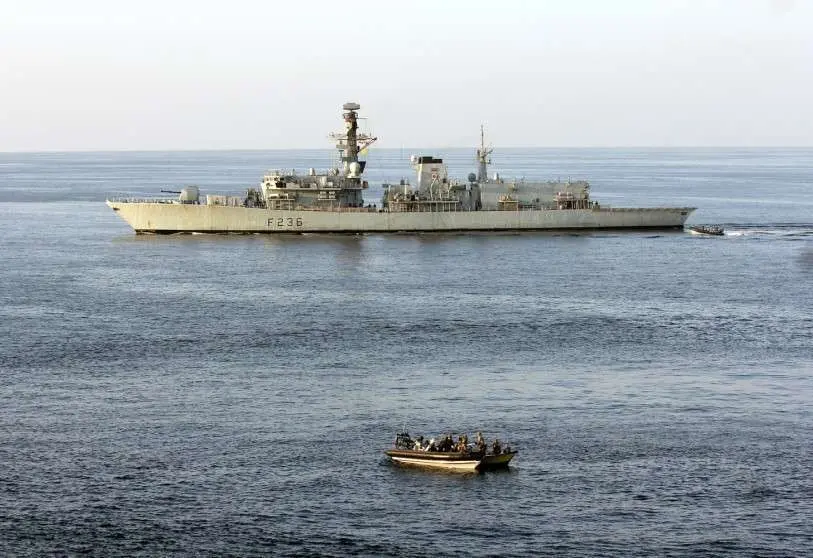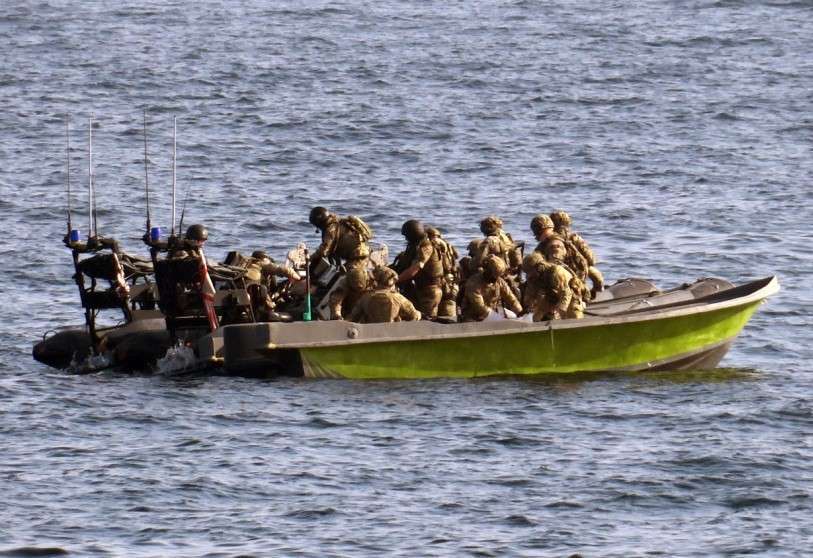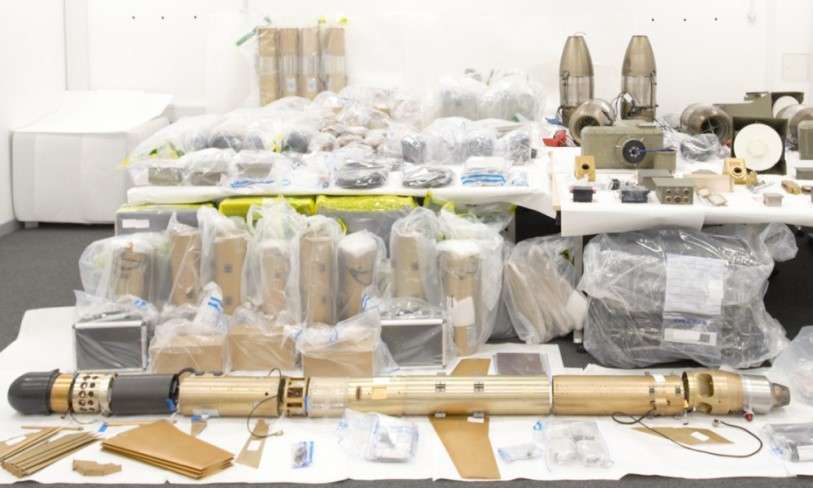UK reveals interception of Iranian missile shipment bound for Yemen

The British Navy issued a statement on 7 July in which it unveiled several news items about its maritime monitoring mission in the Gulf. According to the Royal Navy, in early 2022, while HMS Montrose was patrolling international waters south of Iran, several shipments of sophisticated weaponry from Iran were seized.
According to a statement, a Wildcat maritime surveillance helicopter from the frigate HMS Montrose picked up two vessels with suspicious cargo on its radars, sailing at high speed in international waters. The frigate, which already has numerous drug seizures on its record, initiated its response protocol. The crew of the Wildcat alerted the Montrose.
Two Royal Marine Corps tactical teams were dispatched from the frigate in two rigid boats to intercept the suspect vessels. Under cover of the Wildcat, the Royal Marine teams raided and secured both vessels and found sophisticated Iranian-made military equipment on both of them, which was taken to HMS Montrose.
The seized cache, after analysis, consisted of a batch of Iranian-made SAM 358 surface-to-air missiles. This weapon system, which is relatively new to Iran, is characterised by not being particularly fast, and by the advantage of endurance and perseverance in pursuit of the target. According to OSINT sources, it would allow it to shoot down helicopters or drones more effectively.
58 SAM" is a revolutionary new anti-air weapon
— Patarames (@Pataramesh) October 31, 2020
Similar microturbojet missiles will follow around the word
Such "hunters" make up lack of speed via persistence
➡️ Below I outlined the technical details of it
Its an indicator for Iran becoming a missile innovator
1/3 pic.twitter.com/YavLNz4RpU
Secondly, the Marines also found several 351 missile boosters, also Iranian-made, intended for ground-to-ground attack. According to the Royal Navy, these propellants are frequently used in cruise missiles with a range of 1,000 km that the Houthis have used to attack Jeddah or Abu Dhabi International Airport in 2022.
Given these details, and the dates of the seizure, which pre-date the ceasefire between Yemeni government forces and the Houthis, it is most likely that the Iranian-backed rebels who plunged Yemen into civil war in 2014 were the recipients of this cargo.
"The UK will continue to work in support of a lasting peace in Yemen and is committed to international maritime security so that commercial shipping can transit safely without threat of disruption," said James Heappey, UK defence minister when the information was revealed.

The UK, along with the US and 36 other countries, conducts such interdiction missions in the Gulf waters. The Combined Maritime Forces (CMF), based in Bahrain, is an extra-NATO multinational force with four Task Forces monitoring Arab waters. The force is composed of Australia, Bahrain, Belgium, Brazil, Canada, Denmark, Denmark, Egypt, France, Germany, Greece, Iraq, Italy, Japan, Jordan, Republic of Korea, Kuwait, Malaysia, the Netherlands, New Zealand, Norway, Pakistan, the Philippines, Portugal, Qatar, Saudi Arabia, Seychelles, Singapore, Spain, Thailand, Turkey, UAE, United Kingdom, United States, and Yemen.
The CMF mainly has missions against piracy and drug smuggling, but this time the UK acted on the basis of UN Security Council Resolution 2216 to control illegal arms shipments to Yemen.

Iran, along with Hezbollah, positioned itself from the outset as the main supporter of the Houthi rebels in Yemen's proxy war. According to Arab Coalition, US and OSINT disclosures, the Iranian regime has provided military equipment and training to the rebels since the beginning of the war. Through the Quds Forces, the Revolutionary Guard's external intelligence, the Houthis have received training in amphibious and submarine attack and rudimentary drones to attack enemy positions in Saudi Arabia and the United Arab Emirates. The Iranian regime's assistance allowed the Houthis some military successes that prevented the Arab Coalition from advancing despite its initial material superiority.
Prior to the ceasefire, Crisis Group analysts stated that, from a military point of view, the war in Yemen was at a stalemate, or "balance of power", which led to a rethinking of the conflict between the parties and major changes in Yemeni politics, which reshuffled its leadership at the behest of the Arab Coalition.








